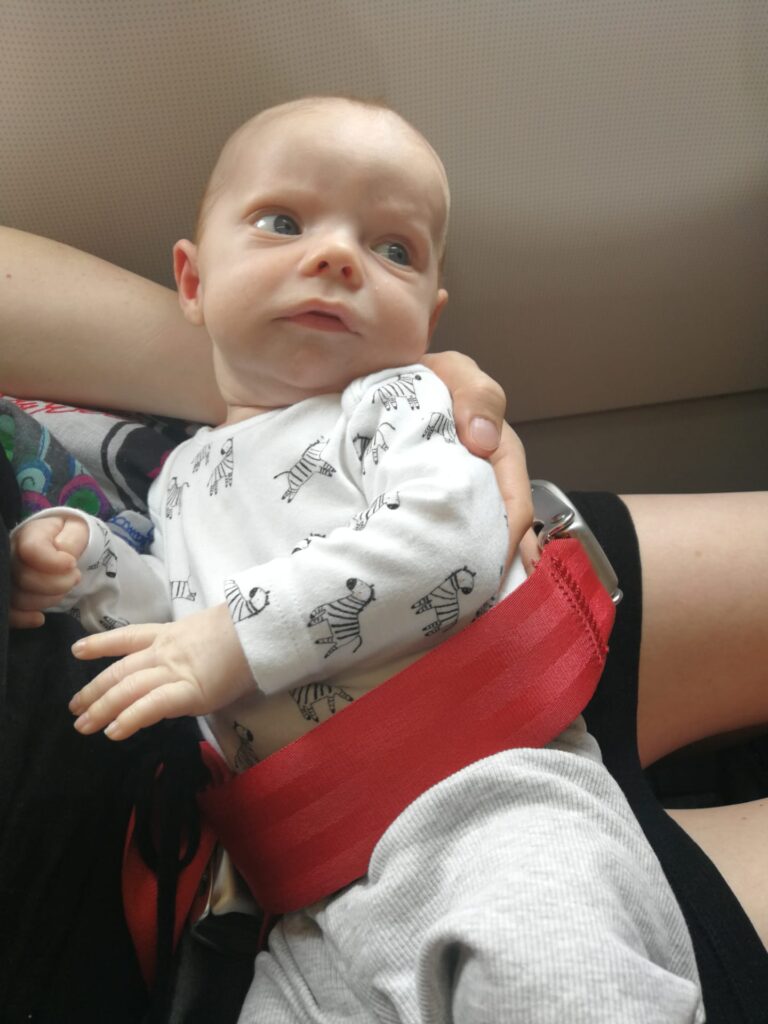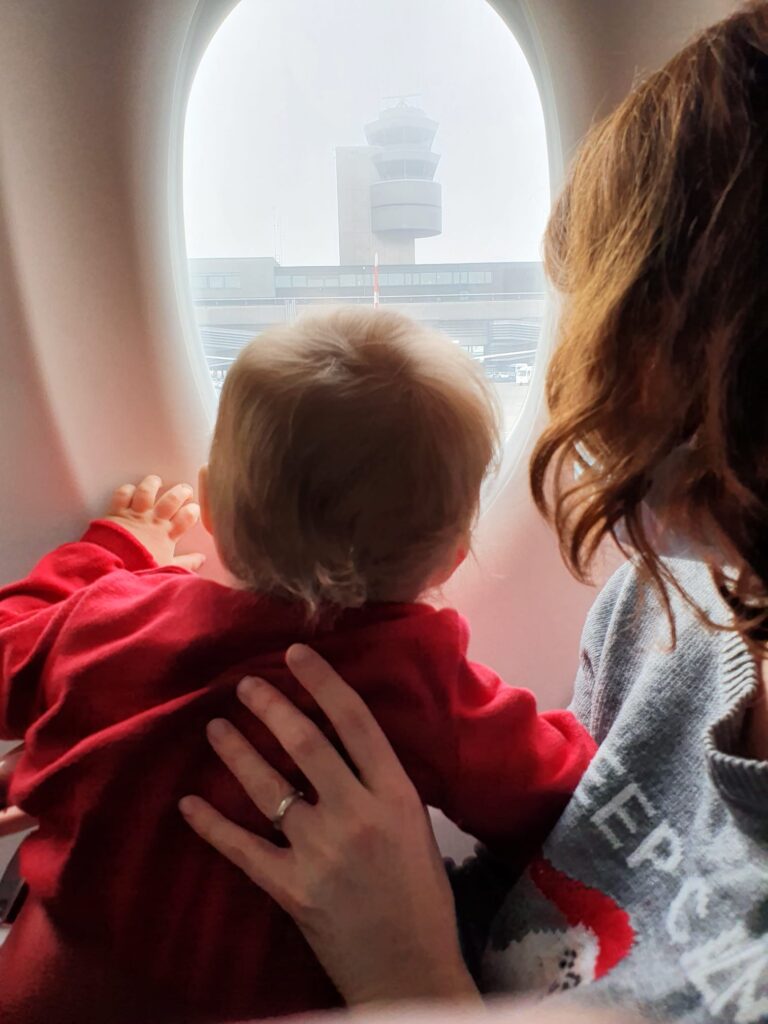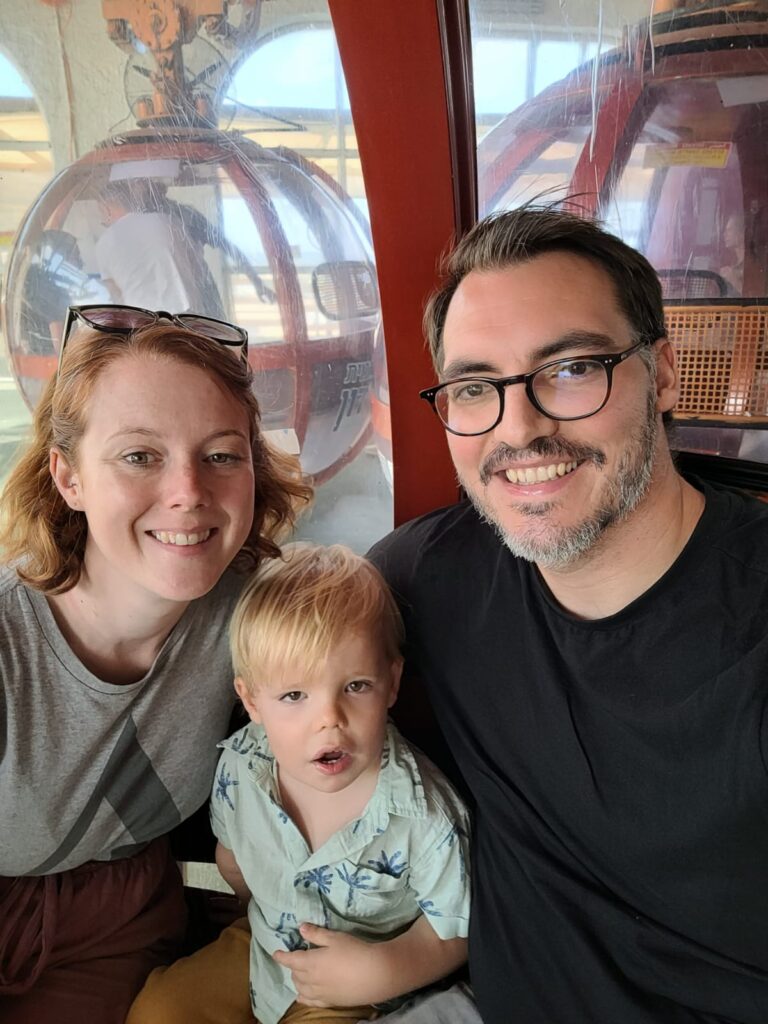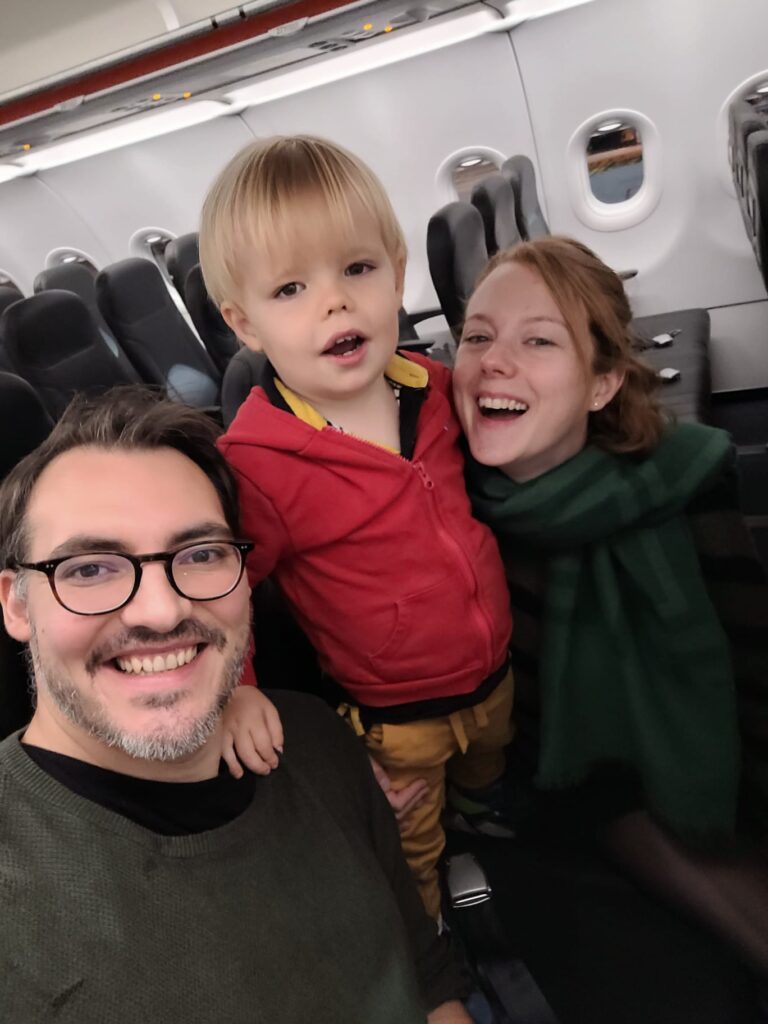My husband and I met abroad, in Spain, doing what we loved the most: travelling and learning languages. Over the next 9 years we kept those passions alive by booking exotic trips and scoffing and yakking our way around the world. When we got pregnant, we assumed life would pretty much continue in the same vein, just with a baby. Oh, how wrong we were. Even when he arrived and we were (unknowingly) embarking on our own rare adventure with our son, we still thought little would change. In the midst of a sleepless nightmare coupled with breastfeeding hell, a shiny new copy of the Lonely Planet Chile plopped through the letterbox at my in-laws with our name on it. My in-laws shared a silent look that confirmed they thought I’d lost my marbles when I waved the brick of a book under their noses and told them of our grand plans to travel around Chile with our son. After totting it up financially, we realised we’d have to sell our souls and shelved the idea – for the moment. However, just a few shorts months later, our lives were completely turned upside down when missed milestones, epilepsy and a global pandemic burst unannounced into our lives. Even if we’d wanted to travel, travel of pretty much any kind had all but dried up. Apart from a surreal zombie-movie-esque 1000km drive across the border mid-lockdown to attend a funeral with our newly diagnosed son, we were stuck. Not only were we stuck, we didn’t know whether travel would be possible again with our new life.
Fortunately, the world opened up again and those roads, planes and trains gradually filled up and life as we knew it pre-pandemic began to return. Yet life with our son would never be the same as pre-diagnosis and we had to learn to travel again with our new circumstances.
While we recognise that travel is a privilege that might be a) financially out of the question for many caregivers to disabled children and b) logistically impossible for many families, especially those with medically fragile kiddos, we wanted to share the little nuggets of wisdom we have learned for those who feel ready to step out of their comfort zone.


- Expect the unexpected
In August 2019, we took our colicky seven-week old on his first trip abroad. After a red-hot week with lots of ups and downs we were back at the airport ready to fly home when disaster struck. The flight was cancelled and moved to the following day. Fortunately Kasper was breastfed and we had supplies but it set in motion the need to have extra extra supplies. Now when we travel we have nappies, extra nappies and even more nappies, the same for clothes and snacks. We are ready.
In 2020 we had a very unexpected ambulance ride while in Germany and while you cannot prepare for these things, you can know where your nearest children’s hospital is.
Not only can travel plans go out the window unexpectedly, so can routine. Naps? Poof, gone. Three-hour security queues can become a hellish reality. There might be drilling from 7am to 7pm, driving your sound sensitive kiddo barmy. That’s why you need a plan A, B & C, extra everything and sometimes a much-needed (and highly recommended) brief mental breakdown in the loo.
- No matter how hard you plan, things can and will go wrong
You can plan meticulously down to the tiniest detail but unforseen circumstances can force you to come unstuck. All it takes is a broken lift in a supposedly accessible building, an unexpected medical emergency or a lost bag with all the essentials for things to start to unravel. This is when all your rare parent training comes into play: you adapt, you roll with the punches and you mama (or papa) bear/Macgyver your way to a solution. You survive, just as you always do.
And, if all else fails, play hell and cry. In August 2021 I stood alone in the passenger boarding bridge with my disabled non-ambulatory child in my arms and stared in horror and disbelief at the air steward who told me that no, I couldn’t have my son’s stroller back despite being resassured all day by various people that I could have it back the moment we landed. He told me I would have to carry my son all the way to the carousels. I gaped at him then I just lost it. I stood there and sobbed. And, you know what? Less than a few minutes later, that impossible-to-get stroller was smack-bang in front of me. All hail the power of playing hell and crying.
3. Do whatever it takes
Flying almost always occurs during Kasper’s naptime which means travelling with a VERY cranky kid. On one flight I scraped my jaw off the floor as the couple in the opposite row cradled their toddler and baby to sleep then leaned back and opened books for the rest of the two hour flight meanwhile my own child had turned into a screaming writhing banshee. Their children woke up sweet and refreshed while mine had become apoplectic. Armed with the knowledge that he cannot and will not sleep on a plane, we do whatever it takes to survive the flight. Snack every ten minutes? No problem. Two hours of screen time? Sure thing. Nursery rhymes on tap? You betcha. Noise cancelling headphones to avoid sensory overload? Fully charged and ready to go. Books for the parents? I would laugh but my jaw is too sore from hitting the floor and too tense from the stress of surviving the flight in one piece.
4. Know your (and your child’s) limits
A few weeks ago my husband and I cuddled on our sofa with a laptop on one lap and an Italy Lonely Planet guide on the other (do you see a theme yet?!)
“We could go to Parma, Bologna and Florence!”
“We could stop by the sea!”
“We could stop by Lake Como on the way!”
“We could even drive!”Nope, nope and nope with extra nope sauce. Perhaps a lifetime ago pre-kiddo but not in this lifetime. Had we learned nothing? How would Kasper cope in a city full of tourists? How would he queue for hours in the summer sun? How would he/we react at inaccessible ancient sights? How would he be after sleeping in different accommodation every few nights and sitting in the car for hours on end? We knew the answers to these questions and it wasn’t good. It wouldn’t be fair on him and it would be disastrous for all of us. That plan went right in the bin where it belonged. We found an Airbnb with a pool, near the sea in a beautiful area of Italy and booked flights. If Kasper isn’t happy, we’re not happy and if no one is happy, what’s the point in spending money just to be miserable?
5. Less is more
In November 2022 we managed to make a dream come true: we returned to Israel, a place we said we’d love to go back to with our children. This time, we made adaptations to our trip. We stripped back our usual hectic itineraries to the basics. We knew we wanted to go to the beach, gorge on hummus and take a day trip or two but apart from that, we woke up every day with an empty schedule and it was GLORIOUS. On the days we had plans, we kept them very simple. One plan per day with naps scheduled in and quiet calm time before and after. We had get out plan Bs. There were no must-sees. Even in Jerusalem we contented ourselves with a wander around the old town, some local snacks and a splash in a fountain before heading home and it was more than enough. Kasper’s highlight of Jerusalem was flashing his bare chest at the locals, wading through a fountain and waving at old men outside the old town walls. We have found a balance that works for us. We minimal expectations and know we can’t see and do it all.
6. Don’t be afraid to ask for help/let people help
Before I realised travelling alone with my son was no longer an option, I ticked the ‘extra assistance’ boxes, roped strangers into holding my child, bags or travel paraphernalia and made our needs clear to staff. When the paramedics swooped into the house in Germany and I found I could no longer form sentences in English, let alone German, they switched to English and suddenly, I was able to see through the fog of abject terror. At the hospital I stumbled around trying to find the right words in German until the doctors asked if English would be easier. I could have hugged them tight with relief. Sometimes all you need is a little help and it’s ok to accept it, especially when travelling.
7. If you can afford it and it’ll make your lives easier, do it
We quickly learned that hotels are a no-go except in emergencies so we always go for Airbnbs. With two bedrooms and a washing machine. These are non-negotiable for us. Not only does no one sleep if our child is in our bedroom, we would need to pack multiple suitcases of clothes without a washing machine. This way we can pack lighter and bring crucial items that our son needs to be happy and comfortable in a strange environment. We also pay a little extra for flights that are not at the crack of dawn or infringing on our son’s bedtime. We already know that travelling will throw everything out of whack and even the slightest change to our son’s routine will catapult sleep out the window so we pay extra to minimise the pain.
8. Learn from your mistakes
I knew as soon as I got out the car at Disneyland Paris and saw the hordes of people running and I mean RUNNING towards the entrance with their Mickey Mouse ears and matching t-shirts that it was possible that this had not been our greatest idea. This was later confirmed when my kid was overtired, overstimulated and refusing to nap in the boiling sun and I had reached my own sensory limitations. Despite using the disability passes, we’d still only been on a small handful of rides and Kasper had maybe enjoyed a couple of them and tried to scramble off the rest. We ended up in a room designed for charging your phones, which was quiet, dark and calm. Kasper probably enjoyed this part the most. Upon reflection we realised the only way to know that Disneyland wasn’t our cup of tea was to go and even though it wasn’t the magical experience we’d been promised, I’m glad we drove all that way and tried.
9. Start smallYour first family trip doesn’t have to re-enact our 1000km drive in a global pandemic with border checks and special government permission to stay in a hotel. We did in fact do some smaller trips including one to a hotel in a nearby town, just to get away. It was disastrous for many reasons but we learned A LOT including what works and what doesn’t for our family.
10. Be brave
When we told those around us about our upcoming trip to Israel we often got a quizzical look, followed by: “are you Jewish?” (we aren’t). Then we got the usual “isn’t it dangerous?” Yes, it can be dangerous but so can many places. We knew Israel has incredible places to visit, beautiful beaches and food I could eat every day till I died of a hummus overdose. What we didn’t know was it had accessible playgrounds for our son all over Tel Aviv. We didn’t know that we’d befriend curious little kiddos and their parents and we didn’t know just how much we loved seeing our little boy have the most amazing time.
All the planning, travelling, scheduling and last minute worries paid off. We got through the long flights, early starts, no nap days and sensory meltdowns. We quaffed beer in the sun, dipped our toes in the sea, gazed at ancient cities, wandered through markets full of spices and saw our son connect with strangers, try new foods and experience new things.
While it wasn’t easy, it was worth it.
Now, on to the next adventure.


